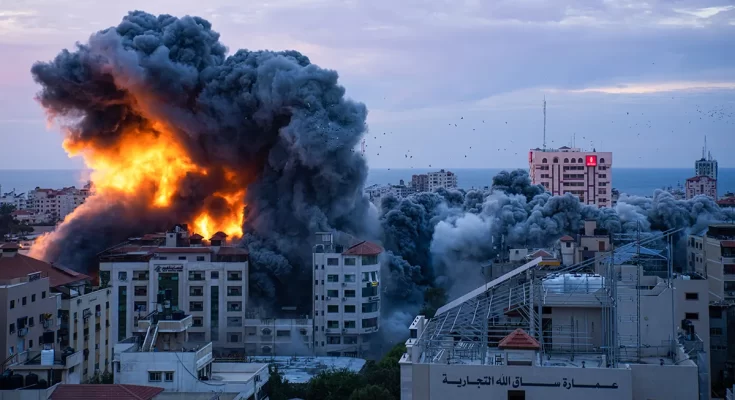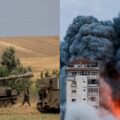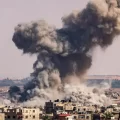The question of whether Israel is turning into a terrorist group is a highly complex and subjective matter, deeply entwined with the intricate dynamics of the Israeli-Gaza conflict. In the unfolding narrative of the Israel-Gaza conflict, recent events have painted a complex picture of a region grappling with a multifaceted crisis.
Amidst the chaos, the evacuation of premature babies from southern Gaza to Egypt stands out. A significant number, 28 out of 31 infants with serious infections, were successfully transported, highlighting the critical nature of humanitarian efforts in the midst of conflict. However, the three infants left behind, receiving care in a local hospital, underline the challenges and uncertainties faced in such operations.
The situation took a grim turn around the Indonesian Hospital in northern Gaza, where heavy fighting claimed at least 12 lives. The hospital, funded by Indonesia, faced an “attack” condemned by the foreign minister of Indonesia as a clear violation of international humanitarian laws. Reports of Israeli tanks operating near the hospital and snipers on nearby rooftops added to the intensity of the situation, raising concerns about the safety of patients and medical staff.
IDF strikes Hezbollah in Lebanon
Simultaneously, the Israel Defence Forces (IDF) claimed to have struck “terrorist infrastructure” belonging to Hezbollah in Lebanon. This move came in response to an attempted anti-tank missile launch at Israel by the Iran-backed militant group. The geopolitical dimensions of the conflict expanded beyond the Israel-Gaza theater, demonstrating the interconnected nature of regional conflicts.
The IDF released footage alleging the presence of hostages in al Shifa hospital, further complicating the narrative. The unverified video, purportedly showing a Nepalese and a Thai civilian “abducted” by Hamas, underscores the information warfare accompanying the military engagements. The veracity of such footage is crucial, as it shapes global perceptions of the conflict.
Qatar’s diplomatic role
In the realm of diplomatic maneuvers, Qatar emerged as a pivotal player, utilizing its communication channels with Hamas for hostage negotiations. Qatar’s history of mediating deals with groups considered terrorist organizations in the West positions it uniquely in the geopolitical landscape. The pressure on Qatar to influence Hamas for the release of Israeli hostages highlights the intricate role the Gulf nation plays in regional conflicts.
The tragic stories of families affected by the conflict added a poignant layer to the narrative. The families of Israeli hostages, speaking at a news conference in London, shared their harrowing experiences. These personal accounts, filled with loss, grief, and uncertainty, humanize the broader geopolitical struggle, emphasizing the toll on innocent lives.
As the conflict unfolded, Jordan’s Crown Prince al Hussein arrived in Egypt to oversee the construction of a field hospital in Gaza. This development, coupled with the evacuation of premature babies to Egypt, signifies collaborative regional efforts to address the escalating health crisis in Gaza.
Deteriorating shelter conditions
Amidst these developments, the UN Relief and Works Agency drew attention to the deteriorating conditions in Gaza’s shelters due to heavy rainfall.
The agency’s plea for humanitarian aid and the description of shelters as “unliveable” shed light on the dire circumstances faced by displaced residents.
Japan’s involvement and ship hijacking
Japan’s involvement in the conflict took a different form, with the country reaching out directly to Yemen’s Houthi rebels after the hijacking of a ship in the Red Sea. The attack on the vessel linked to one of Israel’s richest men adds a maritime dimension to the conflict, showcasing the intricate web of regional hostilities.
The complex tapestry of events, from military strikes and hostage situations to diplomatic negotiations and humanitarian crises, highlights the multifaceted nature of the Israel-Gaza conflict. As the international community grapples with finding solutions, the narratives of individuals and families caught in the crossfire underscore the urgent need for a comprehensive and sustainable resolution to the longstanding tensions in the region.








